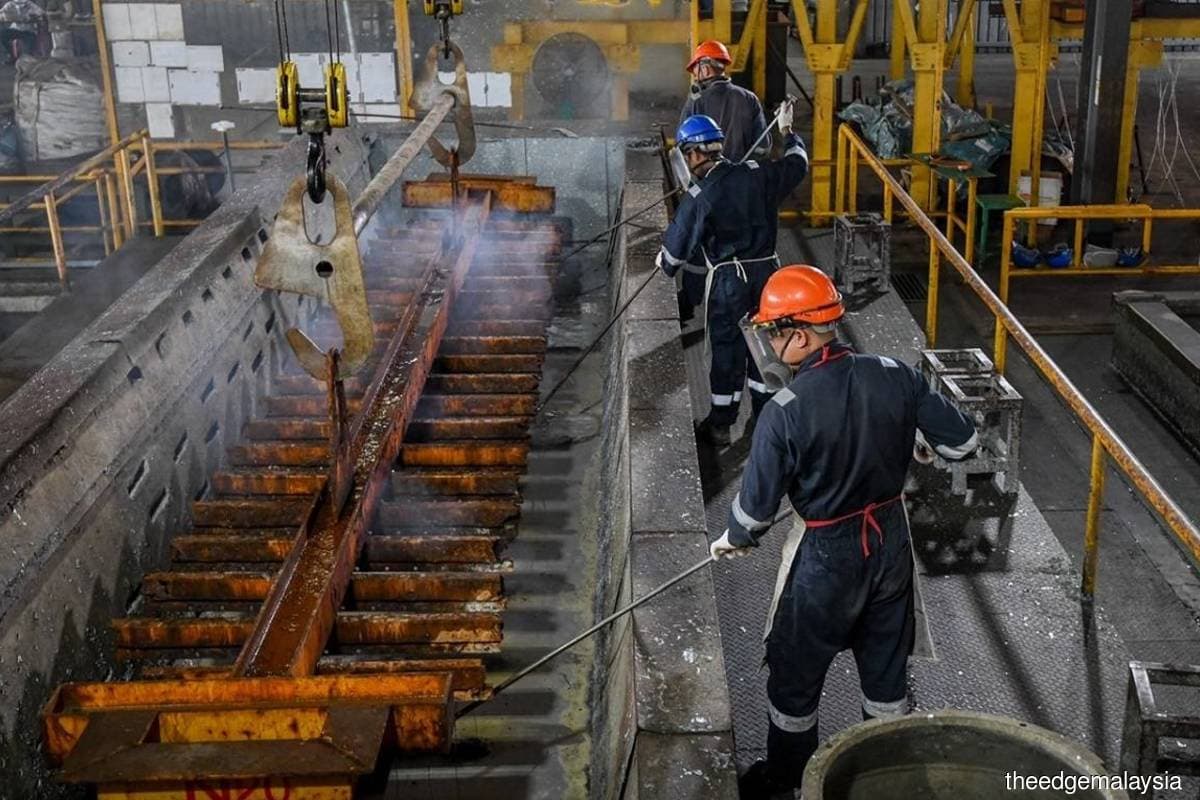
KUALA LUMPUR (Sept 1): Latest data signalled further muted trends across the Malaysian manufacturing sector midway through the third quarter of 2023 (3Q2023). Demand generally remained subdued, leading firms to scale back production amid limited new order inflows.
In a statement on Friday, S&P Global Market Intelligence said the rate of moderation in new orders eased from that seen in July.
Nonetheless, it said firms responded to weak demand by further reducing employment levels in August, and to the greatest extent in 2023 so far.
At the same time, the firm said input price inflation trended upwards for the fifth month in succession to reach the strongest since November 2022.
The seasonally adjusted S&P Global Malaysia Manufacturing Purchasing Managers’ Index (PMI) was unchanged at 47.8 in August, signalling that business conditions remained challenging for manufacturing firms.
The latest PMI reading suggests that gross domestic product growth is running at a similar level to that seen in the second quarter of the year, as well as pointing to modest year-on-year improvements in official industrial production data.
Manufacturers often noted that demand in the sector remained muted during August, with reports of weak customer confidence.
As a result, total new business moderated for a 12th consecutive month, although to a lesser extent than that seen in July.
Demand conditions in international markets also eased, with new export orders falling for the fourth month in a row at a solid, albeit softer, rate.
With customer demand remaining subdued, manufacturers scaled back production, the 13th month running that this has been the case.
That said, the moderation was broadly unchanged from the previous survey period. Meanwhile, stocks of finished goods were wound down at the fastest pace since July 2021, as firms used existing stocks to fulfil orders.
S&P Global Market said companies also reported that weaker market conditions had contributed to a further reduction in staffing levels in August.
It said the latest round of job creation was the fourth in as many months and the steepest recorded since December 2022.
Despite reduced operating capacity, manufacturers further lowered their outstanding business at a moderate pace, extending the current sequence of depletion to 15 months.
For the fifth time in as many months, the rate of input cost inflation accelerated in the Malaysian manufacturing sector.
The latest increase was solid and the strongest reported since November 2022, as firms widely reported high raw material prices, notably due to exchange rate weakness.
In response, output charges were raised for the first time in three months, with the rate of inflation only slight but nonetheless the strongest since February.
In line with the trend for output and new orders, purchasing activity continued to be scaled back as the muted picture for new business deterred firms from buying additional inputs. In turn, stocks of purchases also decreased, and at the fastest pace for two years.
S&P Global Market Intelligence economist Usamah Bhatti said although the latest PMI data suggest that demand conditions remained muted in the Malaysian manufacturing sector during August, the data are still consistent with modest growth in the official statistics.
"That said, evidence is pointing to demand conditions remaining subdued in the coming months, given the sustained moderations in production and new business inflows. Moreover, there was a steeper scaling back of employment levels as firms let go of excess capacity, partly due to efforts to cut costs.
"Input prices rose at a quicker pace for the fifth month in a row and to the greatest extent since last November, which contributed to a fresh increase in output charges. That said, price increases remain well below the levels seen throughout the prior two years and less pronounced than the respective series averages,” he said.

